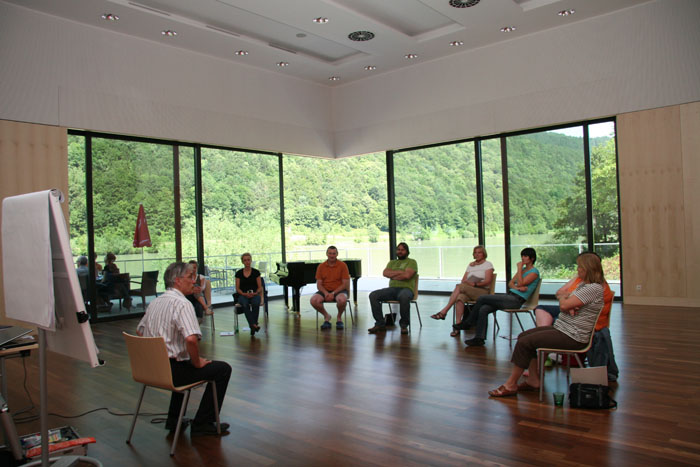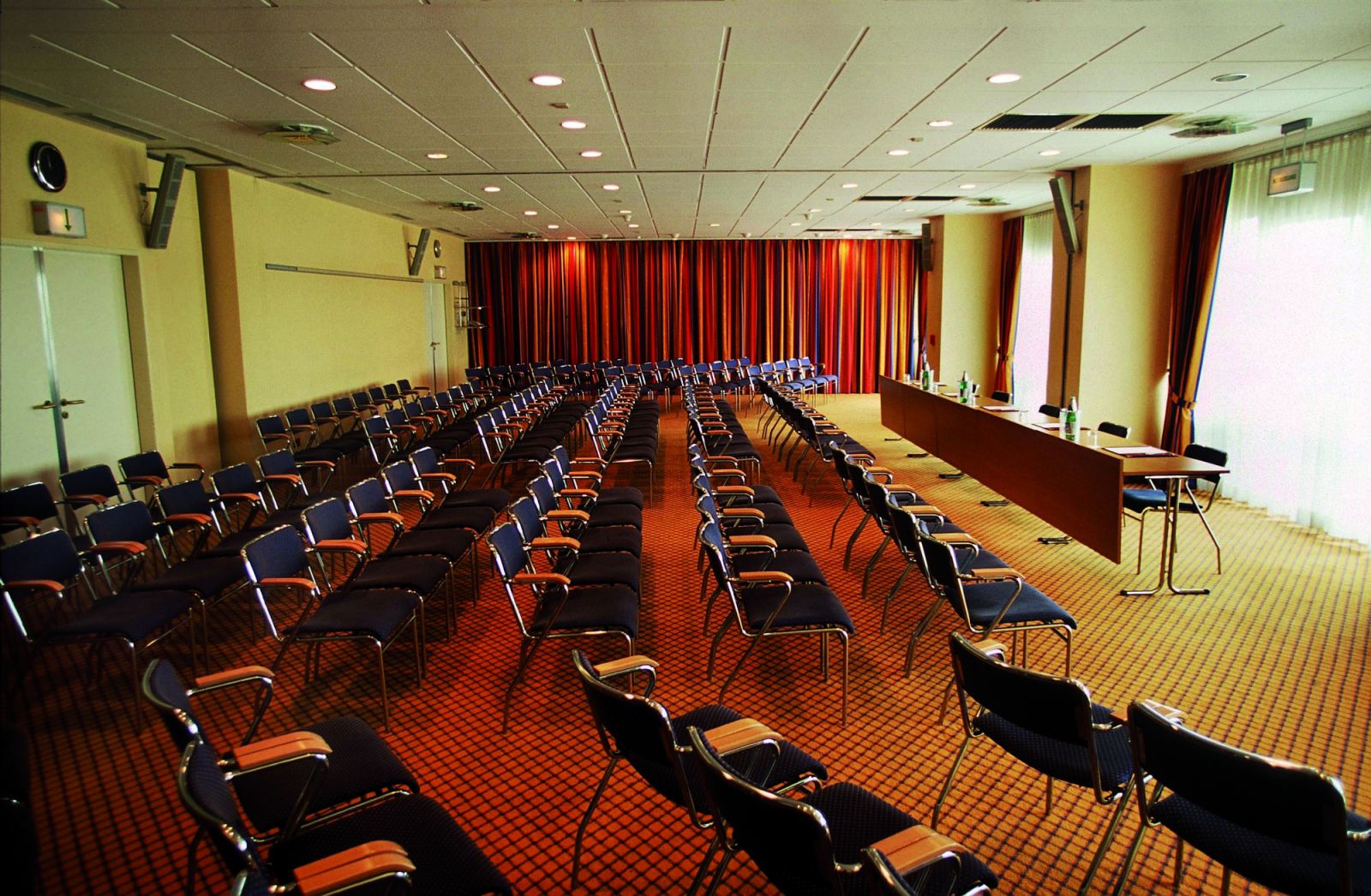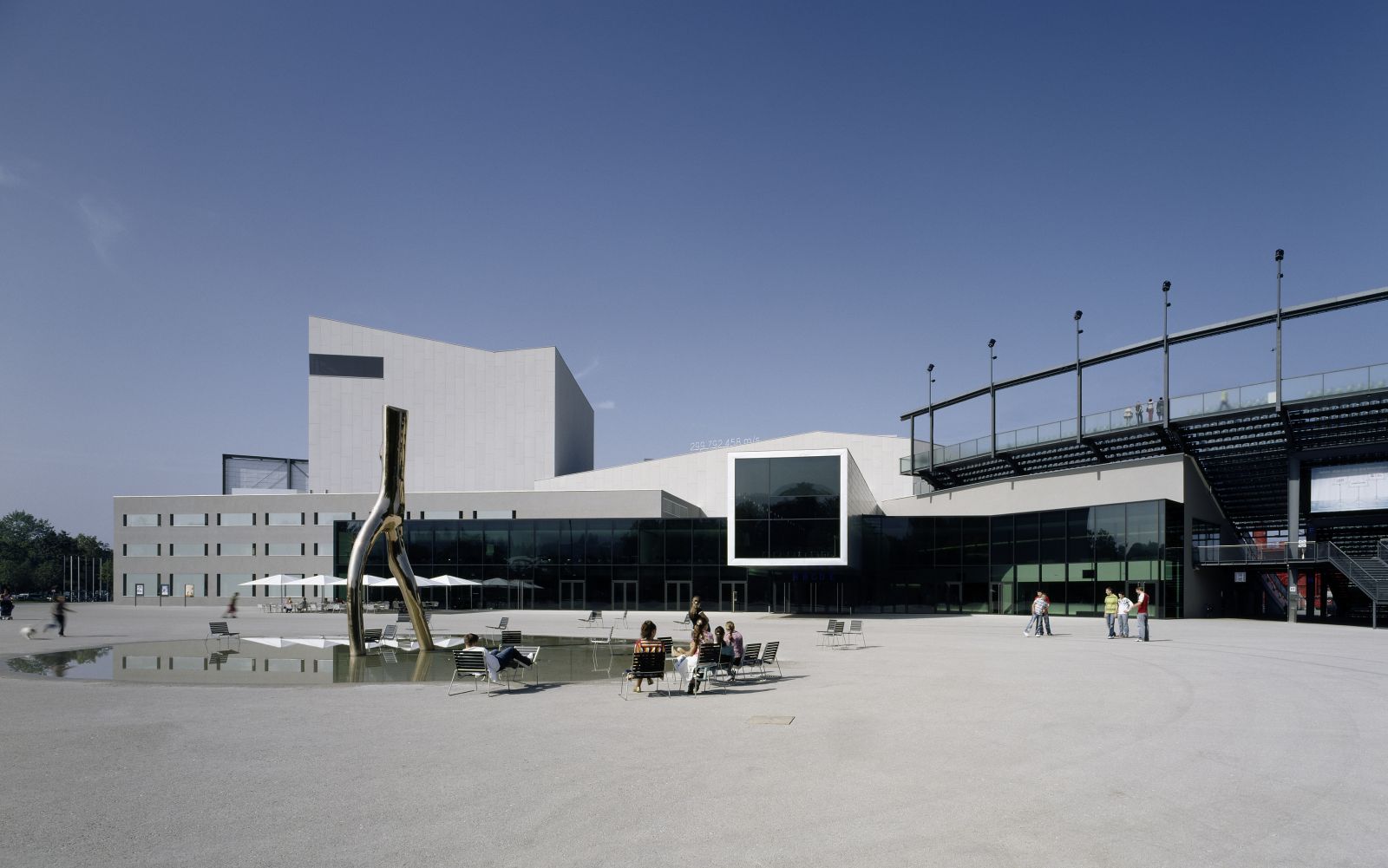
Österreichisches Umweltzeichen
Green Meetings & Green Events
Willkommen beim Österreichischen Umweltzeichen für Green Meetings und Green Events!
Kongresse, Tagungen, Konferenzen - Galas, Sportbewerbe, Konzerte... viele Menschen reisen regelmäßig beruflich oder zu einmaligen Veranstaltungen in andere Regionen oder Städte. Veranstaltungen sind ein wichtiger Wirtschaftsfaktor in Österreich, eine fachliche oder emotionale Bereicherung und soziale Kommunikationsplattform des Berufslebens. Dabei werden allerdings große Mengen an Ressourcen beansprucht, Emissionen verursacht und damit unsere Umwelt beeinträchtigt. Doch auch Veranstalter/innen von Kongressen und Events setzen zunehmend auf Klimaschutz, regionale Wertschöpfung und Sozialverträglichkeit. Anstatt Müllberge und Verkehrslawinen zu verursachen, zeichnen sich "Green Meetings" und "Green Events" durch erhöhte Energieeffizienz, Abfallvermeidung und umweltschonende An- und Abreise der Gäste aus. Zentrale Aspekte sind auch regionale Wertschöpfung und soziale Verantwortung. Die Veranstaltung erhält damit ein positives Image bei der Bevölkerung, den Gästen und den Sponsoren.




- Als Lizenznehmer:in können Sie hier die Daten Ihrer Meetings/Events eingeben und zertifizieren und Ihre persönlichen Daten, Produkte und Partner verwalten. Bitte klicken Sie rechts oben auf "Login".
- Als Veranstaltungsort oder Unternehmen aus dem Bereich Catering oder Gastronomie, Beherbergung oder Messestandbau können Sie hier die Anforderungen einsehen, die ein Green Meeting / Green Event an Sie stellt, und sich in der Produktdatenbank registrieren. Bitte klicken Sie rechts oben auf "Login in Produktdatenbank" und folgen Sie den weiteren Hinweisen.
- Als Interessierte:r können Sie oben unter "Info" zertifizierte Meetings/Events sehen - als Suchformular oder Übersichtsliste.
- Die Richtlinie UZ 62 Green Meetings und Green Events mit allen Bestimmungen und Kriterien können Sie hier herunterladen.
- Mehr Informationen zum Österreichischen Umweltzeichen erhalten Sie unter www.umweltzeichen.at